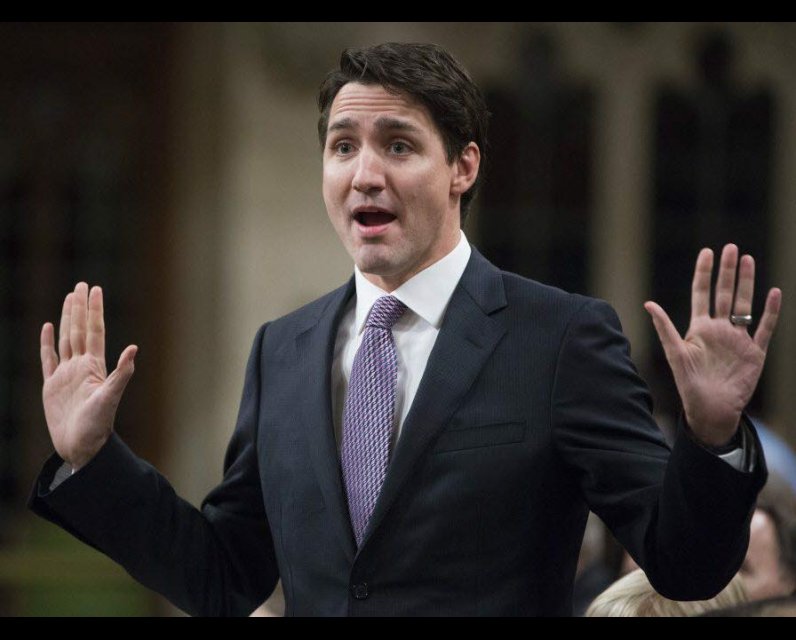Unpublished Opinions
Democracy Watch is a national non-profit, non-partisan organization, and Canada’s leading citizen group advocating democratic reform, government accountability and corporate responsibility.
Our goal is to clean up government and make government and corporations more accountable to you and Canada, the world’s leading democracy.
Democracy Watch is the most effective and successful national citizen advocacy group in Canada at winning systemic changes to key laws since it opened its doors in fall 1993 – it has won more than 110 changes to federal and provincial good government and corporate responsibility laws, many of which are world-leading. Check out our website for a detailed summary of Democracy Watch’s Many Notable Achievements.
Bill C-76 must be changed to strengthen rule prohibiting baiting voters with false promises during federal elections

Rule must be strengthened because Commissioner of Canada Elections negligently refused to enforce it to sanction PM Trudeau’s false electoral reform promise, continuing the Commissioner’s weak record that includes 3,000 secret rulings
Bill C-76 also makes more false claims about election candidates legal
And, as DWatch pointed out last week, Bill C-76 also increases the ability of wealthy interests to dominate election debates with ads, and doesn’t do enough to protect voters’ privacy or to stop secret, fake online election ads
Today, as Bill C-76 heads back to the House of Commons from the House Procedure Affairs Committee, Democracy Watch called on MPs, among other key changes to the bill, to strengthen the rule in the Canada Elections Act prohibiting parties and candidates from baiting voters with false election promises, and not to narrow the scope of the rule in the law that prohibits false claims about candidates.
The first rule (subsection 482(b)) clearly prohibits false election promises by parties and candidates but it needs to be strengthened because the Commissioner of Canada Elections negligently refuses to enforce it. The Commissioner responded to Democracy Watch’s complaint about Liberal Party leader Justin Trudeau baiting voters with his false promise of electoral reform during the 2015 election with a decision refusing to enforce the rule.
This is not the first time that the Commissioner of Canada Elections has negligently failed to enforce the law. Elections Canada has kept more than 3,000 rulings on election complaints secret since 1997 because they may make the Commissioner look bad.
“Bill C-76 must be changed to strengthen the rule in Canada’s election law prohibiting parties and candidates from violating voters’ fundamental rights by baiting them with false promises because the Commissioner of Canada Elections refuses to enforce the rule,” said Duff Conacher, Co-founder of Democracy Watch. “This is not the first time the Commissioner has failed to effectively enforce the federal elections law as the Commissioner has an overall weak record including many secret rulings.”
As well, Bill C-76 narrows the scope of the rule that prohibits false claims about candidates (section 91 of the Canada Elections Act). The current rule prohibits any false claim “in relation to the personal character or conduct of a candidate or prospective candidate.” Bill C-76 narrows the rule so it only covers false claims that these people (and party leaders and officials) violated the law or have been charged or investigated for a violation, and false claims about the citizenship, place of birth, education, professional qualifications or membership in a group or association of these people.
“To ensure that candidates’ campaigns can’t be undermined by false accusations, Bill C-76 must be changed to maintain the current broad rule in Canada’s election law that prohibits essentially all false claims,” said Conacher.
Democracy Watch also called for Bill C-76 to be changed to make the Chief Electoral Officer, Commissioner of Canada Elections, and Director of Public Prosecutions actually independent from the federal Cabinet. Currently, all three are chosen through processes that are completely controlled by the Cabinet (as are many other federal democratic good government watchdogs), which taints them all with ruling party partisanship.
As well, Democracy Watch called for changes to the bill to require Elections Canada, the Commissioner, and the Director of Public Prosecutions to all issue a public ruling on every complaint filed with them or situation reviewed by them relating to any matter covered by the Canada Elections Act, to ensure they are always properly enforcing the law. This would require changing section 510.1 of the Canada Elections Act, sections 16.3 and 16.31 of the Access to Information Act, and subsection 16(1.1) of the Director of Public Prosecutions Act.
Democracy Watch is raising these concerns about Bill C-76 following up on its calls last week that the House Procedure Affairs Committee make other changes to the bill:
- to actually stop secret, false online election ads and to extend the federal privacy law to cover political parties (the Liberals voted against an amendment to extend the privacy law to cover parties), and;
- to decrease donation limits and not to increase the spending limits for third parties (and to ban Canadian-based, foreign-owned businesses from doing any election advertising).
Democracy Watch testified at the Committee’s hearings on Bill C-76 in June and highlighted all these serious flaws in the bill, along with 20 or so other changes needed to ensure fair, democratic elections that Democracy Watch submitted to Special Committee on Electoral Reform and to the government in fall 2016. While Bill C-76reduces some key barriers to voting, it does little else to address key undemocratic election problems.
“If federal politicians actually want to protect the integrity of Canadian elections, Bill C-76 must also be changed to effectively stop secret, false online election ads, protect voter privacy, lower donation limits, not increase interest group ad spending limits, strengthen the independence, effectiveness and accountability of enforcement agencies, increase penalties for violations, and to add many other key fair, democratic election reforms,” said Conacher.



Comments
Be the first to comment